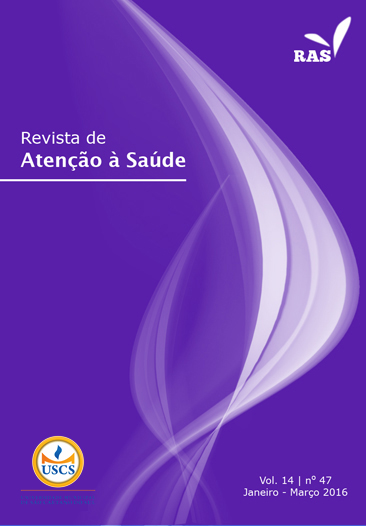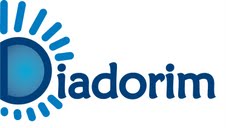Profile evaluation and quality of life of nursing scholars
DOI:
https://doi.org/10.13037/ras.vol14n47.3417Keywords:
Nursing schools, Nursing students, Quality of lifeAbstract
Introduction: Researches involving the evaluation of the quality of life of nursing scholars admit to concludingthat the quality of life of this population is negative in relation to physical, psychological, andmental health. Objective: To evaluate the socioeconomic profile and quality of life of nursing scholars of ahigher education institution in the city of Curitiba, Paraná, Brazil. Methods: A questionnaire for socioeconomicevaluation with 30 closed questions and the World Health Organization’s questionnaire for assessingquality of life (WHOQOL-bref) were used. Socioeconomic data were analyzed using descriptive statistics.Data from the assessment of quality of life were submitted to the mean and standard deviation calculation ofthe answers’ areas using a software developed in Excel that calculates the “total” score of the interviewee andperforms the simple arithmetic average of the scores of the instrument’s 26 questions. Results: The sampleof this study was composed of 156 nursing scholars, 78 of each shift (morning and evening). The predominantage group in the morning shift was 18-20 years (38.46%; n=30), same age group that prevailed on thenight shift (47.44%, n=37). Females accounted for most scholars in both shifts, respectively 88.46% (n=69)and 79.49% (n=62). Regarding the evaluation of quality of life, the domain with the lowest average wasthe Environment (13.03%). On the facets that made up the domains, pain and discomfort, dependence onmedication or treatments, and negative feelings obtained the lowest averages. Conclusion: The preparationof support strategies for nursing scholars in facing adversities imposed by the academic routine is suggested.Downloads
References
1. Martins CB. O ensino superior brasileiro nos anos 1990. São Paulo em Perspectiva. 2000;14(1):41-60.
2. Henriques RLM, Clos AC. Desafios da graduação em enfermagem: a primeira geração de enfermeiros do novo currículo. Rev Enferm UERJ. 2000;8(2):71-2.
3. Sanches MO, Pedro ENR. Ações e expressões de cuidado na prática educativa de enfermeiros docentes. Rev Gaú Enfermagem. 2008;29(1):11.
4. Arcuri E, Araújo TL, Oliveira M. Fatores que influenciaram alunos ingressantes na Escola de Enfermagem da USP, em 1981, na escolha da enfermagem como opção profissional. Rev Esc Enferm USP. 1983;17(1):5-16.
5. Santos CE, Leite MMJ. O perfil do aluno ingressante em uma universidade particular da cidade de São Paulo. Rev Bras Enfermagem. 2006;59(2):154-6.
6. Kawakame PMG, Miyadahira AMK. Qualidade de vida de estudantes de graduação em enfermagem. Rev Esc Enferm USP. 2005;39(2):164-72.
7. Beuter M, Alvim NAT, Mostardeiro S. O lazer na vida de acadêmicos de enfermagem no contexto do cuidado de si para o cuidado do outro. Texto & Contexto Enferm. 2005;14(2):222-8.
8. Oliveira RA, Ciampone MHT. A universidade como espaço promotor de qualidade de vida: vivência e expressões dos alunos de enfermagem. Texto & Contexto Enferm. 2006;15(2):254-61.
9. Jorge MSB, Rodrigues ARF. Serviços de apoio ao estudante oferecidos pelas escolas de enfermagem no Brasil. Rev Latino-Enfermagem. 1995;3(2):59-68.
10. Geib LTC, Saupe R. Educare: ensaiando a pedagogia do cuidado. Texto & Contexto Enferm. 2000;9(2, pt.2):497-508.
11. Oliveira BM, Mininel VA, Felli VEA. Qualidade de vida de graduandos de enfermagem. Rev Bras Enferm. 2011;64(1):130-5.
12. Saupe R, Nietche EA, Cestari ME, Giorgi MDM, Krahl M. Qualidade de vida dos acadêmicos de enfermagem. Rev Latino-Am Enfermagem. 2004;12(4):636-42.
13. Pedroso B, Pilatti LA, Gutierrez GL, Picinin CT. Cálculo dos escores e estatística descritiva do WHOQOL-Bref através do Microsoft Excel. Rev Bras Qualidade de Vida. 2010;2(1):31-6.
14. Pizzoli LML. Qualidade de vida no trabalho: um estudo de caso das enfermeiras do Hospital Heliópolis. Ciênc Saúde Coletiva. 2005;10(4):1055-62.
15. Wetterich NC, Melo MRAC. Sociodemographic profile of undergraduate nursing students. Rev Latino-Am Enfermagem. 2007;15(3):404-10.
16. Eurich RB, Kluthcovsky A. Avaliação da qualidade de vida de acadêmicos de graduação em enfermagem do primeiro e quarto anos: influência das variáveis sociodemográficas. Rev Psiquiatr RS. 2008;30(3):211.
17. Medina NVJ, Takahashi RT. A busca da graduação em enfermagem como opção dos técnicos e auxiliares de enfermagem. Rev Esc Enferm USP. 2003;37(4):101-8.
18. Oliveira Camillo S, Silva AL, Nascimento AJ. Percepções do graduando de enfermagem sobre a dimensão humana no seu aprendizado. Rev Latino-Am Enfermagem. 2007;15(2):207-13
Downloads
Published
Issue
Section
License
Copyright (c) 2016 Silas Alves Machado, Gleidson Brandão Oselame, Eduardo Borba Neves

This work is licensed under a Creative Commons Attribution-NonCommercial-NoDerivatives 4.0 International License.
Policy Proposal for Journals offering Free Delayed Access
Authors who publish in this magazine agree to the following terms:
- Authors maintain the copyright and grant the journal the right to the first publication, with the work simultaneously licensed under a Creative Commons Attribution License after publication, allowing the sharing of the work with recognition of the authorship of the work and initial publication in this journal.
- Authors are authorized to assume additional contracts separately, for non-exclusive distribution of the version of the work published in this magazine (eg, publishing in institutional repository or as a book chapter), with the acknowledgment of the authorship and initial publication in this journal.
- Authors are allowed and encouraged to publish and distribute their work online (eg in institutional repositories or on their personal page) at any point before or during the editorial process, as this can generate productive changes, as well as increase impact and citation of the published work (See The Effect of Open Access).









